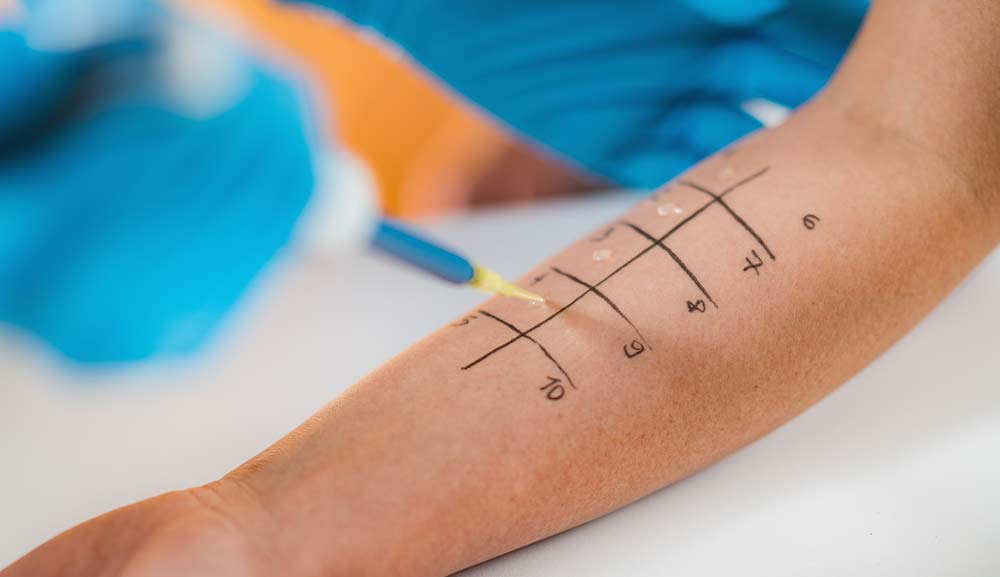Allergy Testing
Allergy testing is a medical procedure used to determine the body’s response to certain substances that may cause allergic reactions. This test is a crucial step in diagnosing allergies, as it helps explain the sudden appearance of symptoms in some people, such as rashes or itching. In this article, you will learn about the importance of skin allergy testing, how it is conducted, and the expected results.

What is Skin Allergy Testing?
Skin allergy testing involves exposing the skin to substances that are likely to cause allergies, known as allergens. The skin area is then examined for signs of an allergic reaction. Along with a medical history, allergy tests can confirm whether a specific substance that a person touches, inhales, or ingests is causing symptoms.
Importance of Skin Allergy Testing
Skin allergy testing helps prevent future allergic reactions by identifying the allergens responsible for the symptoms. This test is safe for both children and adults. Skin allergy tests are used to diagnose allergic conditions, including:
- Hay fever, also known as allergic rhinitis
- Allergic asthma
- Dermatitis
- Food allergies
- Penicillin allergy
- Bee venom allergy
How to Prepare for an Allergy Test?
Before starting a skin allergy test, the doctor will ask about your medical history and other factors that could affect the test results, including:
- Any illnesses you have
- Your lifestyle
- Your diet
- Medications you regularly take
How is Skin Allergy Testing Conducted?
An allergy test takes about 20 to 40 minutes, but some allergens may cause immediate allergic reactions that appear within minutes. The types of skin allergy tests include:
- Skin Prick Test:Also known as a scratch or puncture test, this is commonly used to detect allergies to pollen, mold, and pet dander. It is usually performed on the forearm for adults and the upper back for children. The skin is pricked with fine needles that do not cause pain or bleeding. This test can identify allergies to 50 substances at once.
- Intradermal Skin Test:This test involves injecting a small amount of an allergen into the skin with a needle. The injection site is examined after 15 minutes for any changes or reactions. This test helps detect allergies to insect venom or penicillin.
- Patch Test:This test involves placing a patch on the skin to detect allergens that may take several days to trigger an allergic reaction. No needles or injections are used. Instead, the allergen is applied to a patch, which is then attached to the arm or back for 48 hours. During this period, the area should be kept dry and free from sweat.
Allergy Test Results
If any changes or unusual symptoms appear at the test site, such as a rash, severe itching, redness, or raised bumps, it indicates a positive test result, meaning the person is allergic to the tested substance. If no changes appear, the result is negative.
However, it is important to know that skin allergy tests are not always accurate. Sometimes, allergic reactions may occur even though the person is not allergic to the tested substance.
Skin Allergy Testing at Dr. Rana Gheith's Center
Since skin allergy testing is one of the most important steps to identify any allergies or issues a person may face when using or injecting certain medications, or when trying to identify any allergens for any individual, this test is performed with extreme precision at Dr. Rana Gheith’s center. Any changes or symptoms are closely monitored, and precise medical tools are used to ensure accurate results.

Follow us